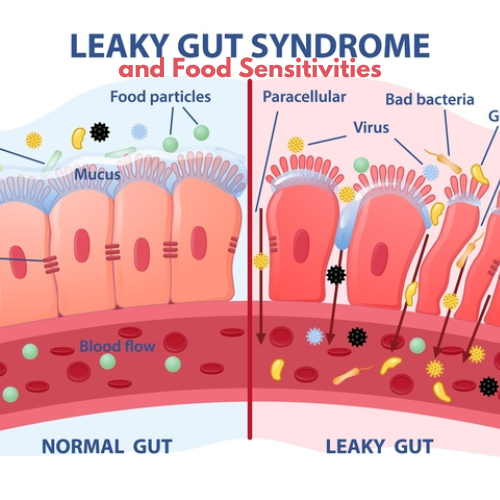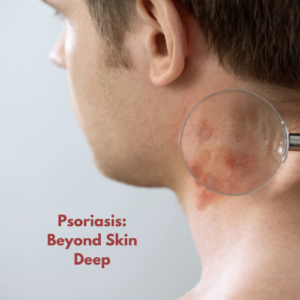It is estimated that more than thirty-three million Americans have food allergies and/or sensitivities, including almost six million children under age eighteen—but that is likely a gross undercalculation. The most common food allergies include milk and dairy, eggs, fish and shellfish, tree nuts, peanuts, wheat, and soybeans, but people can be sensitive to just about anything. Since food allergies and sensitivities were almost unheard of fifty years ago, what is causing this modern epidemic?
Food sensitivities are directly linked to a condition called “leaky gut syndrome”, also referred to as intestinal hyperpermeability. The small intestine when stretched out is about the size of a tennis court and accomplishes the lion’s share of nutrient extraction and absorption from food. The epithelial cells that line the intestines are just one cell-layer thick and in a healthy gut are linked closely together with selectively permeable tight junctions. This is because when we are healthy only very small particles from the food and drink that we consume are allowed to pass through, such as water molecules, amino acids from protein, glucose from sugars, and fatty acids from fats.
In leaky gut syndrome (LGS), the tight junctions between our epithelial cells loosen too much. This allows larger food particles to be exposed to our immune cells that lie just beneath, leading to a chronic hyperactive immune response—resulting in food sensitivities. It also causes bacterial components to pass through that can imbed in both blood vessels and organ tissues. When this happens, people develop chronic inflammatory and hyper-immune conditions. With a greater degree of LGS, over time someone can become sensitive to a large percentage of the primary foods they are eating. Almost all serious degenerative diseases, including cancer, autoimmune illness, diabetes, and digestive disorders include moderate to severe levels of LGS.
Intestinal hyperpermeability is the curse of our modern age, facilitated by many drugs, including antibiotics, birth control pills, and NSAIDS as well as many environmental chemicals. Studies have shown, for example, that life-long exposures to a low dose of the glyphosate-based herbicide Roundup cause intestinal damage and gut dysbiosis in mice. Today over eighty-nine percent of all corn, wheat, oats, soybeans, and cottonseed in the United States are grown with crop systems that involve glyphosate. Of course, LGS is also fed and nourished by our modern diet and how far we have strayed from eating for our true physiological needs.
At Vital Health, gut health is always a focus. We utilize labs that identify types and degree of leaky gut, pathogenic overgrowth of microbes and impact on gut immunity. Food sensitivity reactions can occur anywhere from a few hours to a few days after being consumed, making them hard to pinpoint; therefore, proper food sensitivity tests can accurately identify inflammatory foods to be temporarily removed. We then provide individualized diet counseling, whole food supplement recommendations, and acupuncture (clinically shown to strengthen digestion and reduce inflammation) to both treat symptoms and heal your leaky lining.
Want to hear more from Vital Health? Check out our podcast. Search for VitalHealth4You on your favorite podcast listening app or go to vitalhealthcda.com/podcasts/
©2023 Darcy Greenwald, M.S.O.M., L.Ac. and Vital Health







